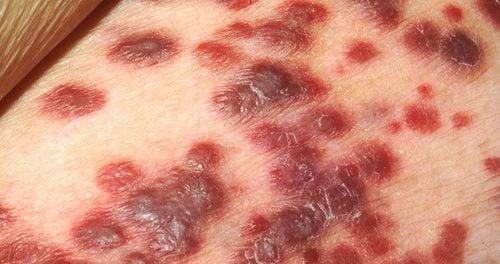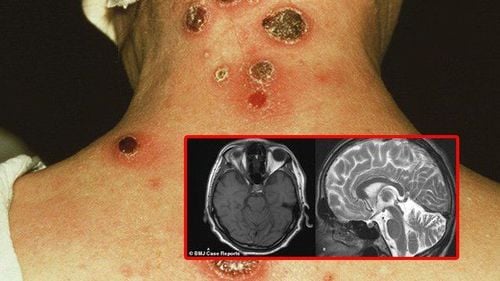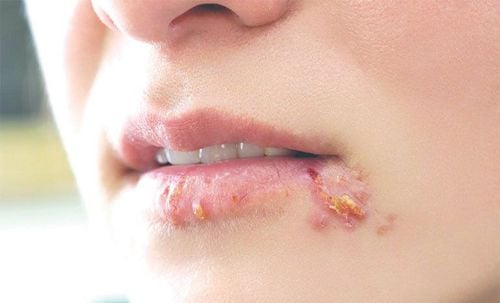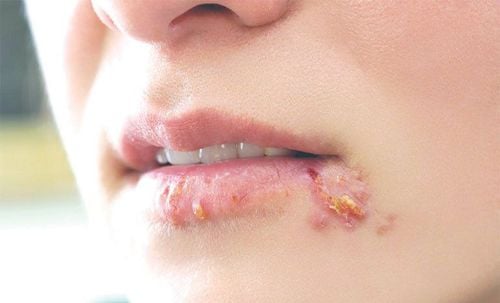This is an automatically translated article.
Syphilis is one of the sexually transmitted diseases. When entering the body, spirochetes will manifest as common sores in the genitals. Then, if left untreated, the spirochetes will enter the bloodstream, causing disease to organs. It's stage 3 syphilis.
1. What is stage 3 syphilis?
After passing through stages 1 and 2, to stage 3 syphilis, the syphilis bacteria are still alive in the body but may no longer show signs or symptoms of infection like 2 previous period. Accordingly, the risk of infection during this period through normal contact routes also becomes more limited.
However, the scariest thing about stage 3 syphilis is that it can still affect the heart, brain, nerves, bones, and other parts of the body. Not only that, this stage can last for many years, even for the rest of the person's life with syphilis.
Even so, not every patient with syphilis will progress to stage 3 syphilis. The reality is that a small number of patients will go into the latent stage, which is the transition from stage 1 to stage 2 and from stage 2 to stage 3. Latent stage of syphilis is a period of time. the time when a person has absolutely no signs or symptoms of syphilis in a man or a woman. Without treatment, the person carries the spirochete in the body in an inactive form, but a syphilis infection can still be detected with a blood test. If treated actively at this time, the patient is still able to eliminate germs from the body. Conversely, if the syphilis infection progresses through the latent stage without treatment, the disease will officially enter the third stage. Treatments for stage 3 syphilis can help kill the spirochetes but cannot improve organ function once damaged.
2. What are the symptoms of stage 3 syphilis?
The characteristics of stage 3 syphilis are no longer skin lesions like stage 1 or 2 syphilis. Instead, in this stage, the disease will manifest as focal lesions of a nature. ingrained, destroying the organization. Therefore, the disease can lead to irreversible sequelae, even death for the patient.
Although stage 3 syphilis has reduced the danger to the community because its ability to spread through casual contact has been limited, it is still a screening disease for pregnant women at the first prenatal visit First, because of the risk of mother-to-child transmission of syphilis and the possibility of giving birth to a child with congenital syphilis. This is because serological tests remain positive in stage 3 syphilis despite the apparent absence of symptoms.
Stage 3 syphilis is a continuation of stage 1 and 2 syphilis. If the latent period of syphilis is not too long, stage 3 syphilis will start to fluctuate around year 3. until the 10th year after the first entry of the spirochetes. Statistics have shown that only 30-50% of patients go to stage 3 syphilis, mainly those who are not detected or not treated at all. The current symptoms of stage 3 syphilis are as follows:
2.1. Tuberous syphilis These are localized lesions in the structure of the skin, mucous membranes, muscles, joints, eyes, digestive system, liver, endocrine. If it is a syphilis tuber, it is copper-red in color with a small amount, located in a certain area without any rules on the skin of the back or hands and feet. Sometimes syphilis tubers are raised on the surface of the skin, round in shape, less than 1cm in diameter, smooth or infiltrated or sometimes scaly like psoriasis.

Giang mai củ có đường kính dưới 1cm
2.2. Syphilis gum in the early stages is usually a round mass, with a hard structure, creating a clear boundary with the surrounding healthy skin. After that, syphilis gum will gradually soften in layers from shallow to deep and stick to the skin, making this skin red, no longer mobile. When syphilis gum is completely softened, it will ulcerate and burst, releasing pus-filled fluid, sticky strings like gum. Underneath is a round, thick, hard and bloody bottom. Finally, when the bottom is clear of pus, the syphilis gum will become a scar, pulling the surrounding skin on common locations such as the face, scalp, trunk, buttocks, thighs, and legs.
In addition, stage 3 syphilis gum can also occur in the mucous membranes of the lips, inner cheeks, tongue, palate, pharynx and genitals. Regional lymphadenopathy is accompanied by a hard, firm, and painless density.
2.3. Cardiovascular syphilis If left untreated, approximately 10% of syphilis patients develop cardiovascular syphilis lesions. At this point, it can be assumed that the patient has been infected with syphilis for a long time in the past, at least 10 years and sometimes up to 40 years.
The most common cardiovascular syphilis lesion is aortic inflammation. Clinical symptoms are not specific other than the usual cardiovascular symptoms. If the disease is advanced, the patient has symptoms of left heart failure due to aortic regurgitation. Examination revealed a diastolic murmur of aortic regurgitation in the bilateral parasternal region; High systolic blood pressure and low systolic blood pressure were measured. When X-ray showed wide mediastinum due to arterial arch dilatation, echocardiography clearly showed regurgitation through the leaflets into the internal aorta during diastole accompanied by left ventricular enlargement.
If valvular regurgitation does not improve, the amount of blood that flows back into the artery over time exceeds the wall tension and further dilates the artery. When the vessel wall becomes weaker, the risk of rupture will be very high, the prognosis of death is almost certain.
2.4. Neurosyphilis The neurosyphilis form occurs when the spirochetes of syphilis invade deep into the spinal cord, into the brain parenchyma, causing meningitis - myelitis, myelitis and encephalitis. However, this form usually appears very late, usually 10 to 20 years after infection.

Xoắn khuẩn giang mai xâm lấn vào não
Sometimes neurosyphilis in stage 3 syphilis also causes the patient to have symptoms of mental disorder, which is easily confused with other neuropsychiatric diseases if not found. damage to other organs.
3. How is stage 3 syphilis diagnosed and treated?
The diagnosis of stage 3 syphilis is based on the underlying lesion with syphilis gum or tubercle. If lesions occur in organs, the differential diagnosis must be made from diseases of that organ alone. However, in reality, stage 3 syphilis in particular or syphilis in general is only diagnosed when thinking about and indicating a serological test with positive results.
Regarding treatment, compared with other stages of syphilis, stage 3 syphilis still uses mainly penicillin antibiotics. Most laboratory culture tests show that syphilis spirochetes are very susceptible to penicillin. Accordingly, no strains of T pallidum have ever been reported to be resistant to this drug. Therefore, penicillin should be used to treat syphilis at any stage.
In addition, people who are being treated for syphilis should abstain from sex with their sexual partners until the antibiotic regimen is completed and the syphilis sores are completely healed. Moreover, people with syphilis must inform their sexual partners so that they can also be tested and treated at the same time, in order to achieve the highest effectiveness in killing spirochetes and preventing future re-infection.
In summary, stage 3 syphilis is the final stage of the pathophysiological progression after spirochete infection. At this time, most patients have damaged organs and are difficult to recover even with treatment. Therefore, the most important thing is to detect early, proactively intervene actively from the beginning, in order to prevent the progression of the disease, and protect long-term health for yourself as well as those around you.
Vinmec International General Hospital offers a Package of Examination and Screening for social diseases to help customers detect diseases early and have effective treatment and prevent dangerous complications. The screening package for social diseases at Vinmec is for all ages, both men and women.
Please dial HOTLINE for more information or register for an appointment HERE. Download MyVinmec app to make appointments faster and to manage your bookings easily.













